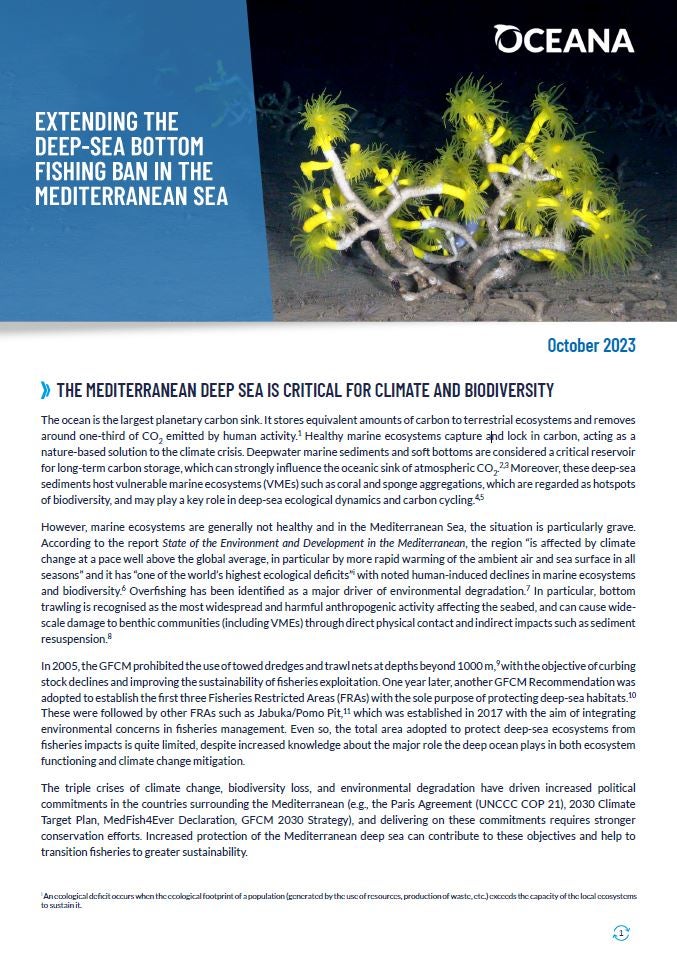Report | October 31, 2023
Extending the deep-sea bottom fishing ban in the Mediterranean Sea
The ocean is the largest planetary carbon sink. It stores equivalent amounts of carbon to terrestrial ecosystems and removes around one-third of CO2 emitted by human activity. Healthy marine ecosystems capture and lock in carbon, acting as a nature-based solution to the climate crisis. Deepwater marine sediments and soft bottoms are considered a critical reservoir for long-term carbon storage, which can strongly influence the oceanic sink of atmospheric CO2. Moreover, these deep-sea sediments host vulnerable marine ecosystems (VMEs) such as coral and sponge aggregations, which are regarded as hotspots of biodiversity, and may play a key role in deep-sea ecological dynamics and carbon cycling.
However, marine ecosystems are generally not healthy and in the Mediterranean Sea, the situation is particularly grave. According to the report State of the Environment and Development in the Mediterranean, the region “is affected by climate change at a pace well above the global average, in particular by more rapid warming of the ambient air and sea surface in all seasons” and it has “one of the world’s highest ecological deficits” with noted human-induced declines in marine ecosystems and biodiversity. Overfishing has been identified as a major driver of environmental degradation. In particular, bottom trawling is recognised as the most widespread and harmful anthropogenic activity affecting the seabed, and can cause widescale damage to benthic communities (including VMEs) through direct physical contact and indirect impacts such as sediment resuspension.


